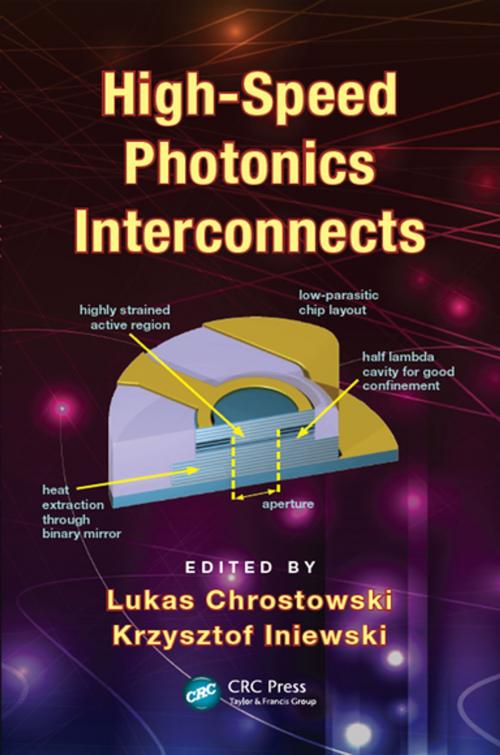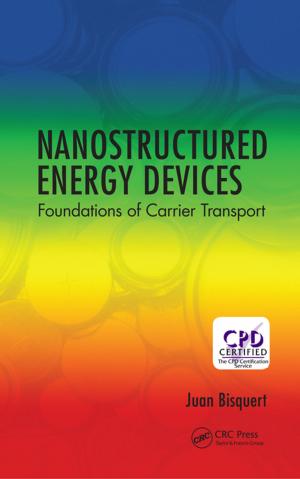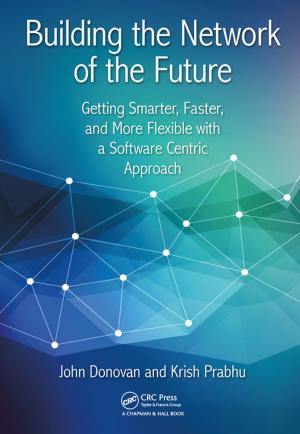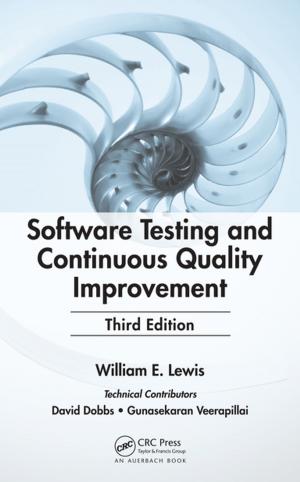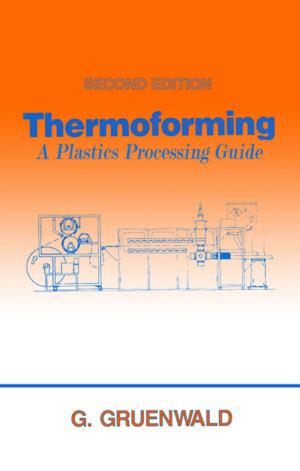High-Speed Photonics Interconnects
Nonfiction, Science & Nature, Technology, Electronics, Circuits, Electricity, Computers, Networking & Communications| Author: | ISBN: | 9781351832267 | |
| Publisher: | CRC Press | Publication: | December 19, 2017 |
| Imprint: | CRC Press | Language: | English |
| Author: | |
| ISBN: | 9781351832267 |
| Publisher: | CRC Press |
| Publication: | December 19, 2017 |
| Imprint: | CRC Press |
| Language: | English |
Dramatic increases in processing power have rapidly scaled on-chip aggregate bandwidths into the Tb/s range. This necessitates a corresponding increase in the amount of data communicated between chips, so as not to limit overall system performance. To meet the increasing demand for interchip communication bandwidth, researchers are investigating the use of high-speed optical interconnect architectures. Unlike their electrical counterparts, optical interconnects offer high bandwidth and negligible frequency-dependent loss, making possible per-channel data rates of more than 10 Gb/s. High-Speed Photonics Interconnects explores some of the groundbreaking technologies and applications that are based on photonics interconnects.
From the Evolution of High-Speed I/O Circuits to the Latest in Photonics Interconnects Packaging and Lasers
Featuring contributions by experts from academia and industry, the book brings together in one volume cutting-edge research on various aspects of high-speed photonics interconnects. Contributors delve into a wide range of technologies, from the evolution of high-speed input/output (I/O) circuits to recent trends in photonics interconnects packaging. The book discusses the challenges associated with scaling I/O data rates and current design techniques. It also describes the major high-speed components, channel properties, and performance metrics. The book exposes readers to a myriad of applications enabled by photonics interconnects technology.
Learn about Optical Interconnect Technologies Suitable for High-Density Integration with CMOS Chips
This richly illustrated work details how optical interchip communication links have the potential to fully leverage increased data rates provided through complementary metal-oxide semiconductor (CMOS) technology scaling at suitable power-efficiency levels. Keeping the mathematics to a minimum, it gives engineers, researchers, graduate students, and entrepreneurs a comprehensive overview of the dynamic landscape of high-speed photonics interconnects.
Dramatic increases in processing power have rapidly scaled on-chip aggregate bandwidths into the Tb/s range. This necessitates a corresponding increase in the amount of data communicated between chips, so as not to limit overall system performance. To meet the increasing demand for interchip communication bandwidth, researchers are investigating the use of high-speed optical interconnect architectures. Unlike their electrical counterparts, optical interconnects offer high bandwidth and negligible frequency-dependent loss, making possible per-channel data rates of more than 10 Gb/s. High-Speed Photonics Interconnects explores some of the groundbreaking technologies and applications that are based on photonics interconnects.
From the Evolution of High-Speed I/O Circuits to the Latest in Photonics Interconnects Packaging and Lasers
Featuring contributions by experts from academia and industry, the book brings together in one volume cutting-edge research on various aspects of high-speed photonics interconnects. Contributors delve into a wide range of technologies, from the evolution of high-speed input/output (I/O) circuits to recent trends in photonics interconnects packaging. The book discusses the challenges associated with scaling I/O data rates and current design techniques. It also describes the major high-speed components, channel properties, and performance metrics. The book exposes readers to a myriad of applications enabled by photonics interconnects technology.
Learn about Optical Interconnect Technologies Suitable for High-Density Integration with CMOS Chips
This richly illustrated work details how optical interchip communication links have the potential to fully leverage increased data rates provided through complementary metal-oxide semiconductor (CMOS) technology scaling at suitable power-efficiency levels. Keeping the mathematics to a minimum, it gives engineers, researchers, graduate students, and entrepreneurs a comprehensive overview of the dynamic landscape of high-speed photonics interconnects.
